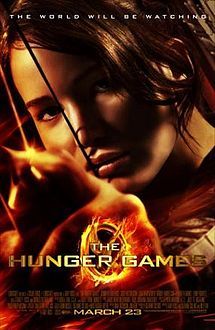A few years ago, something interesting happened. More or less overnight, otherwise intelligent people decided, en masse, that carbs were evil. (If you read The Omnivore’s Dilemma you know this already.) All of the sudden bread was bad. Lo-carb diets were in. Lo-carb beers hit the market. People were counting their net carbs and eating meat for breakfast, lunch, and dinner.

Not so fast.
There’s a reason the lo-carb craze is over- it’s wrong. Just ask the Rabbis.
Or The Hunger Games.
Or Passover.
The Rabbis knew something was special about flour. The Rabbinic precept Ein Kemach, Ein Torah (if there is no flour, there is no Torah), is not only one of most often-quoted passages from Pirke Avot, it also inspired a relatively famous American Jewish folk song. It goes beyond the notion that the brain needs food to function and operate. It’s about how flour is brain food. Human food. Special food. Holy, even.
While Passover celebrates the barley harvest, the Rabbis knew that barley wasn’t top-notch. They called it “animal food,” and instead of making a big deal about it, they instituted the counting of the Omer to mark the seven weeks it would take for the wheat harvest to be ready at Shavuot. Wheat as in flour. As in amazing food, spiritual food. Human food. Challah food.
In case you haven’t noticed we are in the middle of two major culturally important events- the release of The Hunger Games and the celebration of Passover. The centrality of food, and in fact flour, in these two events cannot be overstated.
In The Hunger Games, bread rules. Consider the following:
1) The name of the post-apocalyptic nation in which the story takes place is Panem, the Latin word for bread.
2) The youths of the twelve Districts literally risk their lives by submitting their names additional times into the drawing for the Reaping, held to choose the two youths who will be sent to The Hunger Games, in exchange for more additional grain and oil to feed themselves and their families.
3) When Katniss Everdeen, the heroine, partners with District 11’s mini-Tribute, Rue, until she is killed, the people of District 11 send her bread as a token of their thanks and appreciation for her love and care for Rue.
4) Katniss’s District 12 partner, Peeta Mellark, is the son of baker: a flour-master.
Time and time again, flour, grain, and bread pop up in the story. While some may focus on the Christian themes of The Hunger Games, it’s clear that you can pick up some big-time Jewish and, yes, Passover themes in there as well.
My own slant on the Pesach connection is that we give flour a bad name at Passover time. Yet it is important to note that flour is, in fact, the central food actor in the story. While chametz is forbidden during Passover, flour is celebrated. Matza is simply flour and water. Potato flour takes center stage as a substitute in many of our favorite Passover desserts. We celebrate the existence of this most basic bread foodstuff in the recitation of Ha Lachma Anya and in the blessing of HaMotzi that is said over the Matza when we eat it for the first time.
Without flour, there would not enough natural carbohydrate for our bodies, there would be no food in Panem, no survival for Katniss, and no livelihood for Peeta. There would be no Matza, no food for the desperate flight from Egypt, no journey to Mount Sinai, and no Torah.
So in a roundabout way, the Rabbis certainly got it right.
Ein Kemach, Ein Torah.
This post has been contributed by a third party. The opinions, facts and any media content are presented solely by the author, and JewishBoston assumes no responsibility for them. Want to add your voice to the conversation? Publish your own post here. MORE


